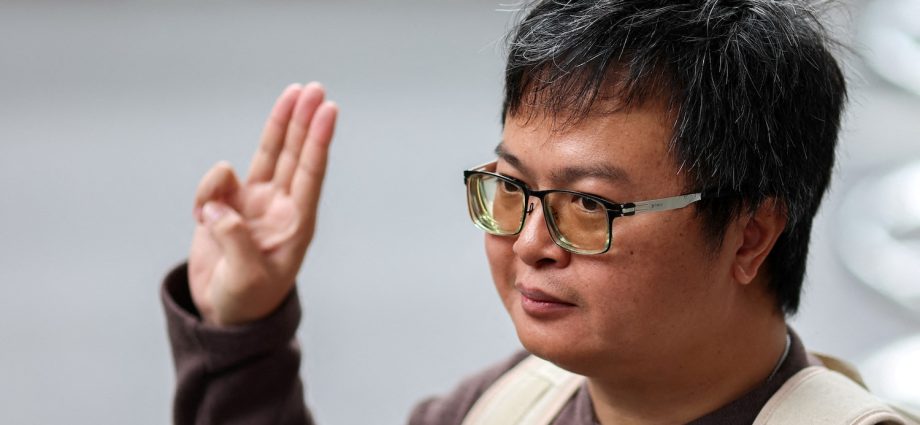Rights groups call on PM Srettha to act on his statement that ‘problematic’ law needs amending

The courts have handed down 100 rulings, including 79 convictions, in royal defamation cases since the use of Section 112 of the Criminal Code was revived two years ago, rights groups said on Tuesday.
Most of the cases stemmed from defendants’ participation in pro-democracy demonstrations and political expression, including online posts, said a report by the International Federation for Human Rights (FIDH), Thai Lawyers for Human Rights (TLHR), Union for Civil Liberty and Internet Law Reform Dialogue (iLaw).
According to information compiled by TLHR, between Nov 30, 2021 and Oct 30 this year, courts of first instance have ruled in cases involving 100 defendants charged under the lese-majeste law. Of these, 79 were found guilty and 21 were acquitted. The longest prison sentence imposed was 28 years.
“The number of lese-majeste convictions is again reaching alarming levels,” said Adilur Rahman Khan, the secretary general of FIDH.
“Thailand’s prime minister said he is in favour of amending Article 112 of the Criminal Code, so he should do whatever is in his power to ensure that its enforcement does not violate human rights,” he said, referring to earlier statements made by Srettha Thavisin.
According to data from TLHR to Sept 30 this year, 1,928 people have been prosecuted for political participation and expression since the beginning of the Free Youth protests in July 2020. At least 258 are facing charges under Section 112 and 130 have been charged with sedition under Section 116.
Twenty of those facing charges under Section 112 are under the age of 18. Some of the most prominent pro-democracy activists, such as human rights lawyer Arnon Nampa, face prosecution in multiple cases, which could result in prison terms of up to 300 years.
Section 112 imposes jail terms for those who defame, insult or threaten the King, the Queen, the Heir to the throne or the Regent. Persons found guilty face prison terms of three to 15 years for each count.
Anyone can file a Section 112 complaint and police are obliged to investigate it. One tactic frequently used by royalists is to file a complaint in a province hundreds of kilometres from the residence of the accused. Defendants are then forced to travel to the province where the complaint was filed to attend all their court hearings.
At least 16 people charged with lese-majeste are currently detained: one awaiting trial; two children detained at the Children Observation and Protection Center; 10 appealing their cases; and three serving their prison sentences.
Most of those who have been found guilty of lese-majeste since November 2021 are not currently imprisoned because they were either granted bail pending appeal or had their prison sentences suspended.
The activist groups have urged the government to amend Section 112 to bring it into line with the country’s obligations under the International Covenant on Civil and Political Rights (ICCPR).
The current wave of lese-majeste prosecutions began in late November 2020 after then-prime minister Prayut Chan-o-cha pledged to enforce “all laws and articles” against leaders and protesters who participated in the pro-democracy rallies that were sweeping the country.
During many of these demonstrations, protesters broke a longstanding political taboo by directly criticising the monarchy and calling for reforms of the institution.
“We recall the remarks made by Prime Minister Srettha Thavisin on April 6 2023, in the lead-up to the May 14 general election, that Article 112 ‘is problematic in its enforcement’, and that it ‘needs to be reviewed … so as to prevent it from being used as a political tool’,” the rights groups said in a statement.
“FIDH, TLHR, UCL, and iLaw also reiterate their calls on the Thai government to reverse many of the previous administration’s repressive policies and actions, including by refraining from carrying out arrests, prosecutions, and detentions of individuals for the peaceful and legitimate exercise of their fundamental right to freedom of opinion and expression.”

